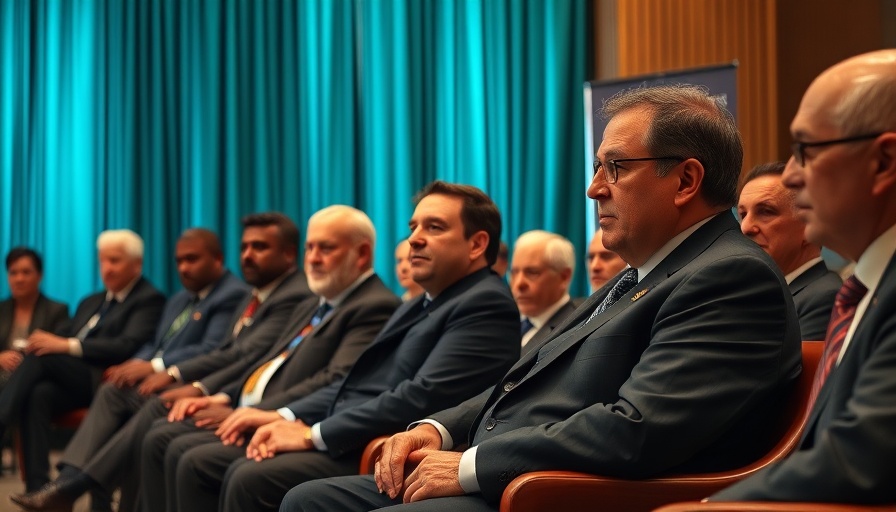
The Tensions Between the U.S. and Iran: A Diplomatic Standoff
In an increasingly volatile geopolitical landscape, the recent threats exchanged between U.S. President Donald Trump and Iranian Supreme Leader Ayatollah Ali Khamenei illustrate the dangers of diplomatic failures and miscommunication. Trump's assertion that Iran would face severe consequences if they don’t agree to a new nuclear deal reverberates through the corridors of power not merely in Tehran and Washington but across the globe. The notion of unilateral atomic negotiations paints an alarming picture of a world where power dynamics threaten Iran’s sovereignty and provoke further instability.
In 'Iran vows forceful response after Trump threatens to bomb country', the discussion dives into current U.S.-Iran tensions, prompting a deeper analysis of the implications for international politics.
Contextualizing the Iranian Nuclear Deal Collapse
The backdrop to this conflict is the Joint Comprehensive Plan of Action (JCPOA), signed in 2015, which presented a historic attempt to curtail Iran's nuclear ambitions. However, in 2018, the United States pulled out of this agreement, subsequently reinstating stringent sanctions on Iran, leading to dire economic conditions and a resurgence in geopolitical hostilities. This sequence of events underlines a pattern of American foreign policy characterized by abrupt policy shifts, often disregarding established diplomatic protocols and leading to exacerbated tensions.
The Evolving Narrative of Threats and Responses
The recent threats from Trump have incited a predictable reaction from Iranian leadership, vowing retaliation for any military provocation. Khamenei's statement that Iran would deliver a "firm reciprocal blow" highlights the potential for miscalculations in the high-stakes game of military posturing. In an age where conventional warfare gives way to cyber threats and guerrilla tactics, the escalation of hostile rhetoric can lead to unimaginable consequences.
International Implications of U.S.-Iran Relations
The tensions between the U.S. and Iran transcend national borders, rippling into international relations, particularly in the Middle East. Allies and rivals alike are compelled to position themselves amidst this climate of hostility, leading to possible alignments and realignments that can redefine the balance of power. The effects of such a standoff significantly impact African nations, either directly or indirectly, as they navigate their own relationships with global superpowers amidst economic dependencies and historical ties.
Understanding the Broader Democratic Discourse
Amidst these escalating tensions, it is essential to explore how this situation intertwines with broader democratic debates within Iran and the U.S. Both nations grapple with internal dissent — in Iran, as the populace continues to question the government's aggressive posturing, and in the U.S., where Trump's foreign policy decisions often polarize opinion among constituents. This discourse raises critical questions about accountability in governance and the role citizens play in influencing foreign policy.
Future Predictions and the Path Forward
Looking ahead, the potential for constructive engagement between Iran and the U.S. hinges on the willingness to return to negotiations rather than opting for added sanctions or military provocations. As history illustrates, diplomacy remains one of the most potent tools for resolving conflicts. To prevent further deterioration of relations, both leaders may need to explore avenues for bilateral discussions that prioritize economic stability and security over inflammatory rhetoric.
The Call to Action: Advocating for Diplomatic Solutions
Amid a landscape teetering on the edge of escalated conflict, our discourse must advocate for peaceful resolutions over military engagement. It is imperative for professionals, policymakers, and citizens alike to vocalize support for diplomatic approaches that tackle the root causes of disputes rather than merely treating the symptoms. Collective pressure may catalyze a political shift towards renewed negotiations and mutual understanding — crucial for ensuring global peace and security.
 Add Row
Add Row  Add
Add 




Write A Comment